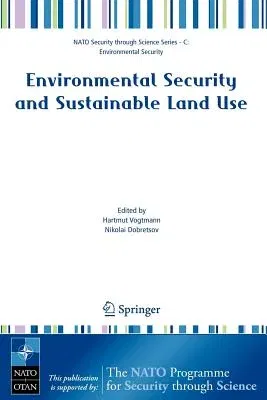Environmental Security and Sustainable Land Use - With Special Reference to Central Asia (2006)Paperback - 2006, 24 April 2006

Qty
1
Turbo
Ships in 2 - 3 days
In Stock
Free Delivery
Cash on Delivery
15 Days
Free Returns
Secure Checkout
Part of Series
NATO Security Through Science Series C:
Part of Series
NATO Security Through Science
Part of Series
NATO Security Through Science Series/ NATO Security Through
Part of Series
NATO Science for Peace and Security Series / NATO Science fo
Part of Series
NATO Science for Peace and Security Series C: Environmental Security (Paperback)
Part of Series
NATO Science for Peace and Security Series C: Environmental
Part of Series
NATO Security Through Science Series C: Environmental Securi
Part of Series
NATO Security Through Science Series / NATO Security Through
Part of Series
NATO Security for Science Series C: Environmental Security
Part of Series
NATO Security Through Science Series / Sub-Series Uenvironme
Print Length
362 pages
Language
English
Publisher
Springer
Date Published
24 Apr 2006
ISBN-10
1402044925
ISBN-13
9781402044922
Description
Product Details
Book Edition:
2006
Book Format:
Paperback
Country of Origin:
NL
Date Published:
24 April 2006
Dimensions:
23.39 x
15.6 x
2.06 cm
Genre:
Ecology
ISBN-10:
1402044925
ISBN-13:
9781402044922
Language:
English
Location:
Dordrecht
Pages:
362
Publisher:
Series:
NATO Security Through Science Series C:NATO Security Through ScienceNATO Security Through Science Series/ NATO Security ThroughNATO Science for Peace and Security Series / NATO Science foNATO Science for Peace and Security Series C: Environmental Security (Paperback)NATO Science for Peace and Security Series C: EnvironmentalNATO Security Through Science Series C: Environmental SecuriNATO Security Through Science Series / NATO Security ThroughNATO Security for Science Series C: Environmental SecurityNATO Security Through Science Series / Sub-Series Uenvironme
Weight:
548.85 gm

